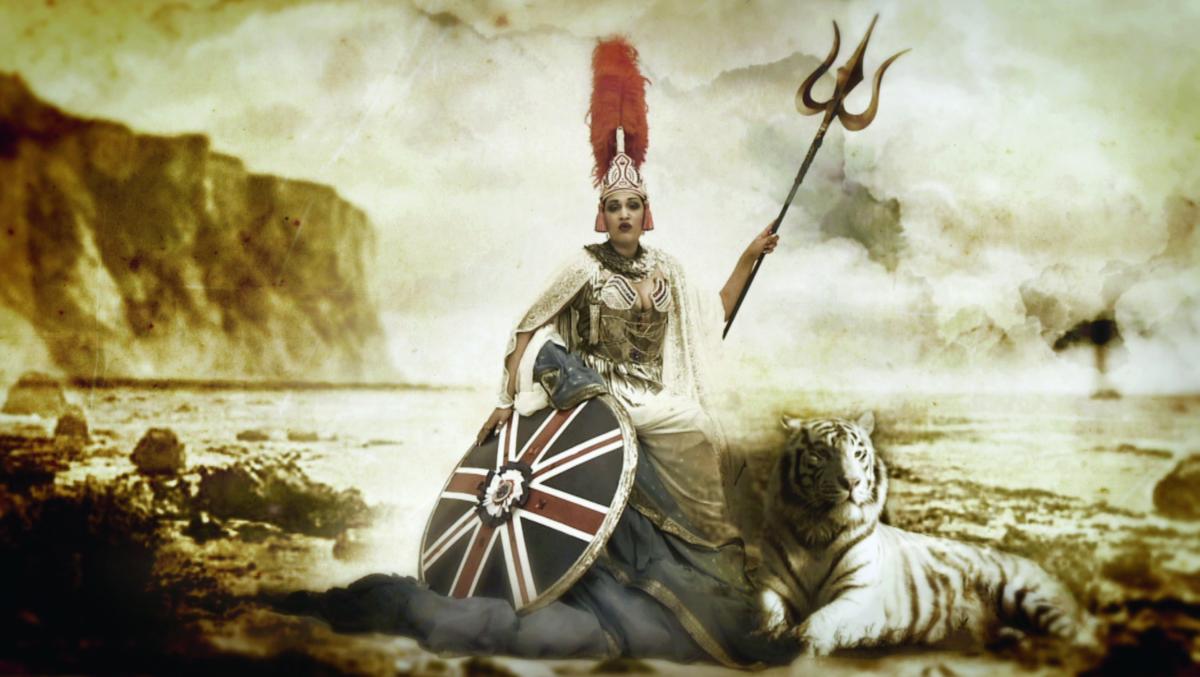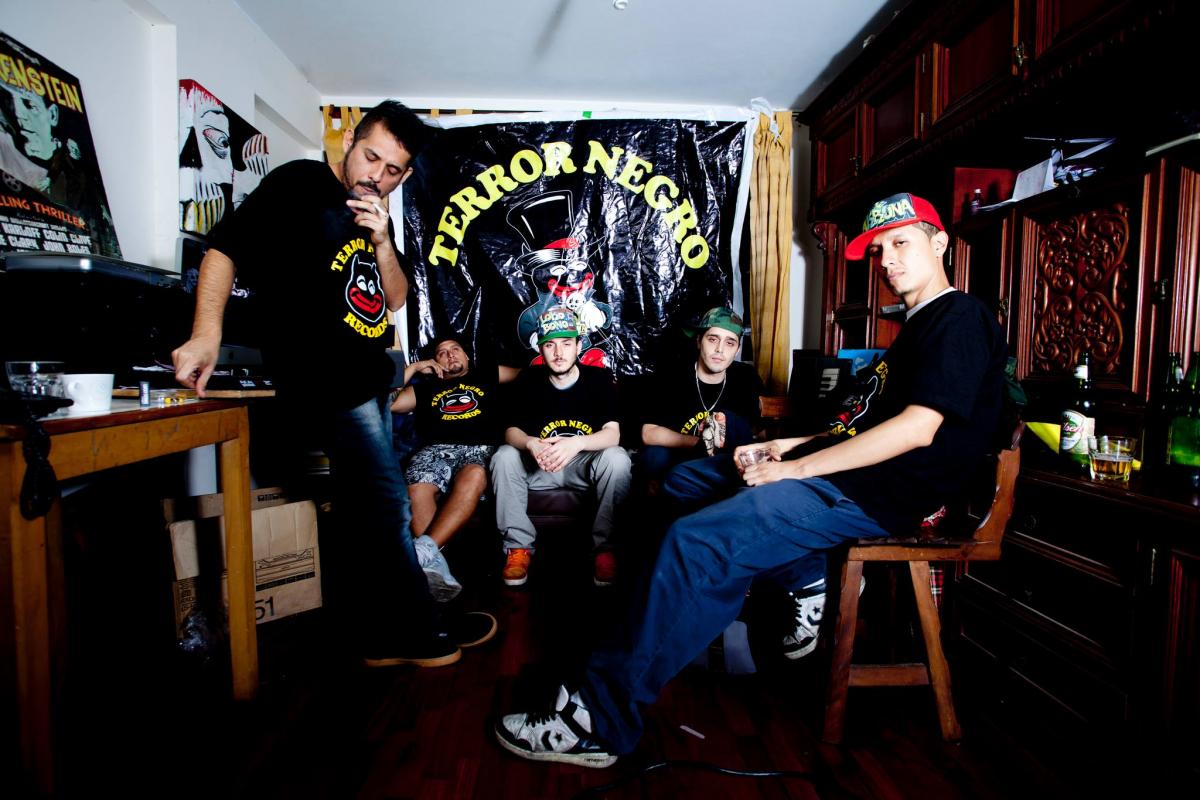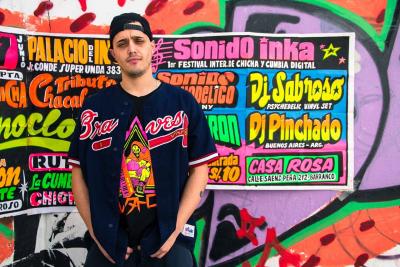The label Terror Negro from Lima is a home for south american bassmusic hybrids. The founder Deltatron talks about subverting the eurocentric mainstream and the micropolitics of Perus club culture.
[Philipp Rhensius]: When I stumbled upon your label it was especially the name that struck me first: Terror Negro has a pretty political connotation. What's the idea behind the name and the label itself?
[Deltatron]: Negro is referring to the black and brown latin beat culture that was always put down by the so called «club» or «eurocentric» scenes. It's about being rebellious with the sounds and the culture we portray since 2009. We don’t really dig all that Ambient and Cumbia styles because that's more like world music. And it's often used to get gigs at european festivals. But we prefer straight Hardcore Cumbia or Reggaeton or to work with ghetto beats because we grew up with it. Everyone from the label has his own style and his own way to work with these rhythms that are all over the cities in South America but are sometimes caged. The label is giving them a new mindset.
[PR]: What does the word terror mean in this context?
[D]: In Peru, the word Terror is pretty hard because we have some real terrorists in our country's recent story. Nevertheless, for many of us the real terrorists have always been the government and their friends, as well as the colonial countries that are always – even nowadays – trying to put down what we do culturally. So we called it like that because we feel like cultural vandals as we are sampling and bootlegging to subvert the mainstream culture. We strongly believe in creative commons and the real value of sharing information freely. As DJs and producers, we are always grabbing, stealing and manipulating information no matter of their origin.
[PR]: Bootlegging is quite common these days in Peru, isn't it?
[D]: Yes, we have a huge piracy culture in our country. Thousands of families are making their living from working in the bootlegging industry, mostly in the fields of clothing, music, software and video. The bootlegging stuff is sometimes the only chance to get cultural access.
[PR]: You mentioned Cumbia and Reggaeton before. Which other styles does your label stand for?
[D]: When we started the label, we wanted to create a sound for our city. We were tired of always listening to people around us trying to copy american and european sounds. We wanted to include influences from the styles we listened to growing up: Cumbia, Reggaeton and some Eurodance – stuff that was all over the radio in the 1990s and 2000s during Fujimoris presidency. Then a lot of people started working on more complex rhythms like afroperuvian (Festejo, Lando) and andean (Huayno, Huaylash), but also with ghetto sounds like Favela Funk, Kuduro, Juke, Tribal and all that. We have a lot of fun playing with all these styles.
[PR]: What's the scene in Peru like?
[D]: It's pretty diverse, even if there are small audiences. But there is a little space for everyone – parties for every urban tribe, even if they are small. The radio and the TV is dominated by Cumbia and Reggaeton. Like big band romantic-love Cumbia and Colombian melodic teenager Reggaeton – stuff that you hear in the mainstream clubs too. But there are a lot of other people that are more based in the bass and sound system culture, like Dub, Jungle, Juke, Grime. I prefer the second one because that's where our movement really started. I don t like that 4 to the floor european stuff that some guys are playing, especially when they are saying that latin america is the next berlin but playing the same shit they play in berlin. That's stupid and colonial to me. I'm playing every friday in a tropical club for 1500 people and they all love our style because we mix it with mainstream acapellas and shit. As the places I play are bigger and more mainstream, I try to have a balance between the romantic style (the pop songs) and the perreo style (the hardcore stuff). EDM, House and Techno is pretty big too. In general, Peruvians are really party people. There is a lot of coke and ecstasy so people prefer the rave aspect, even if its tropical or techno or whatever. But as house and techno is really big here, it's difficult to create a scene as we are always copying other stuff.
[PR]: What about your own parties? They seem to be an alternative space to these events?
[D]: There has been an evolution. From 2009 to 2012 our parties happened in squats and little clubs with 300 people. Then from 2012 to 2014 we grew bigger and we started to play in big clubs and make our own parties in there, for 1500 to 2000 people. So we kind of moved out from the underground, even if this is still an underground movement. My own parties happen in small venues for 300 people and they are pretty diverse, sexually and musically. They are called Ver$us and I bring bring djs from different crews that play more ghetto rhythms from all over the world. I think Lima is always struggling between being something important and just feeling important. But there's also a lot of racism and classism in the parties but it is so low-key that nobody bothers.
[PR]: Speaking of this. I guess every club culture has its issues with sexism and classim nowadays, from Berlin to Rio to Cape Town, especially on a more subtle level, which I would call the micropolitics of club culture. Could you describe the situation in Lima ?
[D]: Lima is a pretty racist and classist and machist city. There is always some violence going on against women or blacks or indians, or between them. It's a clash of cultures and sometimes people get angry and show some ugly faces or some attitudes that are plainly stupid. But the club culture is diverse. The big festivals are pretty patriarchal and racist and shit but there are underground house parties with very queer connotations. In the tropical scene there is no race or gender discriminated or something like that. I think it is more open. And yes, in general this is sometimes pretty low key, like in the politics of behaving. You can see classism a lot. From the ticket fee to the clothing policy to the music they play.
[PR]: The music itself can also contain «battlefields» of political or ideological ideas. With regards to the things you talked about at the beginning, could you comment on this?
[D]: Musically, there is a colonial mindset that's always around, that people think, that local things are cheesy or not worthing nothing, and that going to other countries to work and live is better than staying here. For me, it's some fucked up thinking. People tend to think that techno and house is more «aspiratonal» and the local urban music like cumbia and reggaeton are more hood or poor people music. I would compare it to the disco/hip hop dichotomy you had in New York in the early 80s. But is has been changing over the years. Especially because of things like the chicha art movement (an art initiative aimed at creating street art workshops for underprivileged young people in Lima) and the local food explosion in the international media, people got more friendly towards our roots again.
[PR]: Could you name some of your most interesting artists?
[D]: I think they're all interesting. What I can do is show you my favourite tune of each of them.
Chakruna
Tribilin Sound
Loko Bonó
Sonidos Profundos



